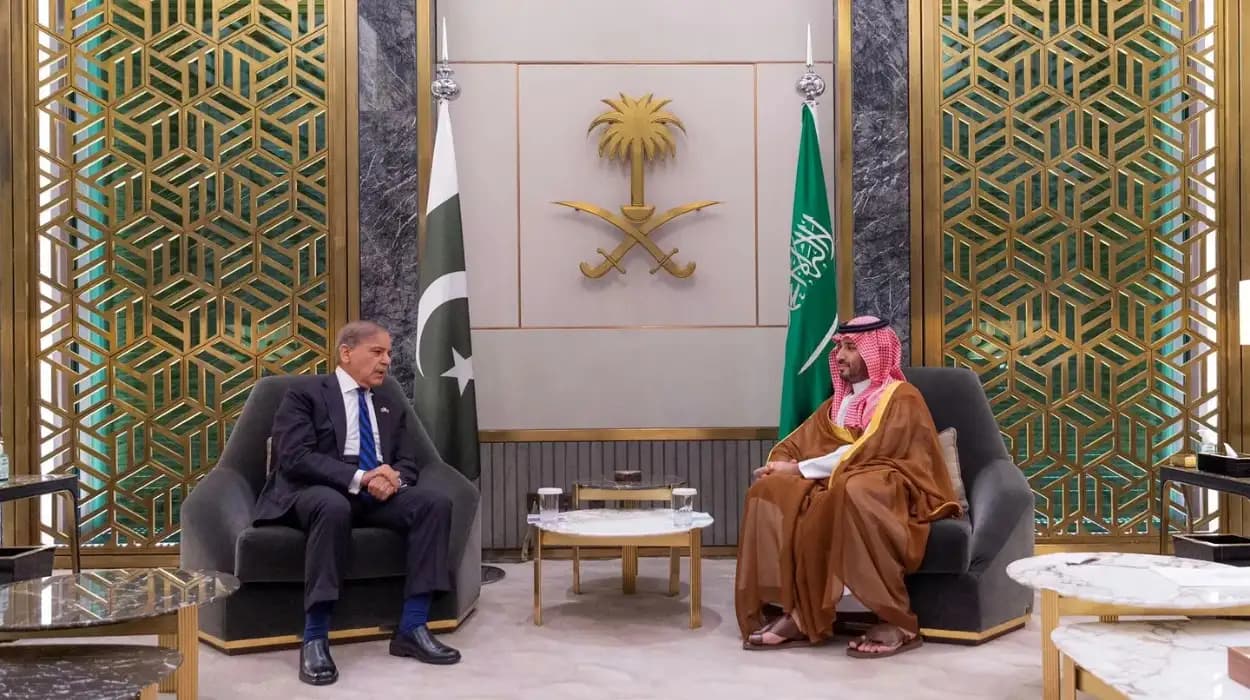The Strategic Mutual Defence Agreement signed on 17
September 2025 by Saudi Crown Prince Mohammed bin Salman and Pakistani Prime
Minister Shehbaz Sharif establishes a mutual security commitment between the
two nations amid shifting regional alliances and security concerns. However,
the pact remains cloaked in ambiguity, with many operational and strategic
details undisclosed.
Strategic Mutual Defence Agreement Signing
The Pakistan-Saudi Strategic Mutual Defence Agreement (SMDA)
was signed at Al Yamamah Palace in Riyadh during Prime Minister Shehbaz
Sharif’s state visit to Saudi Arabia. The pact commits both countries to treat
any aggression against one as aggression against both, thereby formalising
decades of military cooperation and signalling deeper strategic alignment.
Background and Geopolitical Context
Both Pakistan and Saudi Arabia have shared military,
economic, and religious ties since the 1960s, with Pakistan historically
providing training to thousands of Saudi military personnel and stationing
troops to defend Saudi borders during various conflicts.
The timing of the pact follows the 9 September 2025 Israeli
airstrikes on Qatar, which heightened Gulf states’ concerns about regional
security and U.S. reliability as a security guarantor. This agreement embodies
Riyadh’s effort to strengthen deterrence against regional threats, particularly
from Iran and Israel, while expanding its defence autonomy.
Key Provisions and Ambiguities
The agreement’s operative clause is clear:
"any aggression against either country shall be considered an aggression against both."
However, the exact terms of military cooperation, financial commitments, and
operational control remain undisclosed, fuelling speculation and uncertainty.
A senior Saudi official told Reuters that the pact
“encompasses all military means” and hinted at potential nuclear dimensions due
to Pakistan’s status as a nuclear-armed country. However, neither side
officially confirmed nuclear sharing, with Pakistani Defense Minister Khawaja
Asif initially suggesting but later denying such implications, contributing to
the pact’s opacity.
Pakistan’s Nuclear Role and Saudi Position
Pakistan is the only nuclear-armed Muslim-majority nation,
and reports suggest Saudi financial support for Pakistan's nuclear program. The
strategic pact may provide Saudi Arabia with a form of nuclear deterrence
without explicit public confirmation. This unique arrangement marks the first
military pact between a GCC state and a nuclear power.
Regional and International Reactions
The pact has stirred unease in regional capitals,
particularly India, where analysts see the agreement as a direct challenge to
regional security. Indian strategist Brahma Chellaney noted Saudi Arabia’s
awareness of India’s concerns but viewed the pact as Riyadh’s move to assert an
independent strategic posture with Pakistani military and nuclear backing.
The deal also serves as a deterrent message to Israel in the
wake of its strikes on Qatar and signals a potential shift in Gulf security architecture
away from sole reliance on the U.S.
Pakistan’s Domestic and Political Perspectives
Within Pakistan, the agreement has been framed by government
officials as vital for securing national and regional peace and a reflection of
historic brotherly ties. The visit included key ministers and the army chief,
signalling high-level support. However, the pact’s classified aspects have
raised calls for parliamentary oversight and transparency.
Future Implications and Strategic Impact
As noted by experts from Chatham House, the pact could set a precedent for extended deterrence arrangements and reshape South Asia and Gulf security dynamics. Saudi Arabia seeks long-term defence autonomy through cooperation in defence industry collaboration, joint military production, and technology transfer alongside traditional military cooperation.
